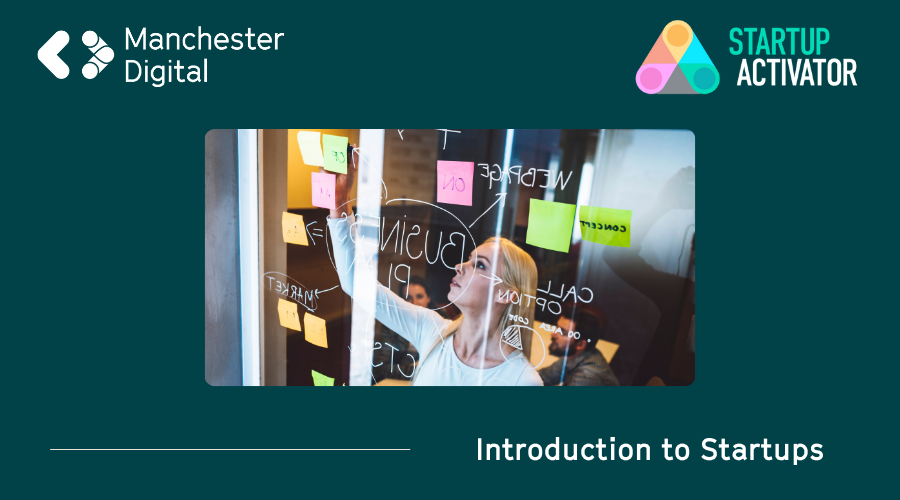
Ahead of the launch of the Startup Activator, a new programme designed to help Greater Manchester startups maximise success, we'll be sharing a series of blogs featuring insider tips, expert advice and useful resources.
Startup life is not your typical 9-to-5 job. It's fast-paced, often unpredictable, and requires a blend of creativity, resilience, and passion. Early-stage startup life is a unique and often intense experience, characterised by a mix of excitement, uncertainty, and relentless pursuit of a vision.
Before starting a startup, you need to ask yourself why are you doing this? Startups are both hard work and incredibly rewarding. However, 90% of startups fail, but the 10% that make it can often go on to be world changing companies like Airbnb, Stripe, and Uber.
You will often be facing challenges and crises that you have never faced. Reid Hoffman, founder of LinkedIn and Investor at Greylock has famously summarised this experience by saying: “Startups are like jumping off a cliff and building the parachute on the way down”.
Early stage startups often work with limited resources – be it financial, human, or technological. Team members in early-stage startups usually wear multiple hats, meaning individuals may handle a range of tasks that stretch beyond their formal job descriptions, leading to rapid learning and skill development.
So when you are thinking of why you want to start a company, you need to ask yourself why along with the following:
- How much do you care about this problem?
- What unique insight/ability do you/your team have that makes you the people to solve this problem?
- Is this something people want?
If you are able to articulate answers to these questions and solve a genuine problem, then you stand a chance of succeeding.
So how do you take your idea from just an idea to early traction, and beyond?
The first thing you need to do is speak with your potential customers to see if there is any actual demand. If you have enough people telling you they want your solution now or even wanted it yesterday and would be willing to pay for it, then you have some early validation. The best founders will often speak to around 200 prospects to validate their idea.
The next step is to develop your Minimal Viable Product or “MVP”. If you do not have the sufficient technical skills to build this yourself, then you will want to find a co-founder to build this with you. This won’t be easy, but one of the skills required by any great CEO is the ability to recruit top talent to buy into their vision. You may often be aiming to lure talent away from another project and/or the safety of a steady job and income to join the often unpredictable world of startups.
When it comes to building your product/solution, you want to move quickly, with continuous feedback from users. You can’t launch perfect, and there is another famous saying that “if you’re not embarrassed by your first release, you’ve launched too late”. That isn’t to say you shouldn’t be striving to build a great product, but once it is in the users’ hands it will evolve quickly and often in ways you don’t expect.
Along with this, you will need to be considering any admin, pricing, financials, growth, team, and investment. All of these will be covered as part of Manchester Digital's Startup Activator Programme. For more information, click here.









